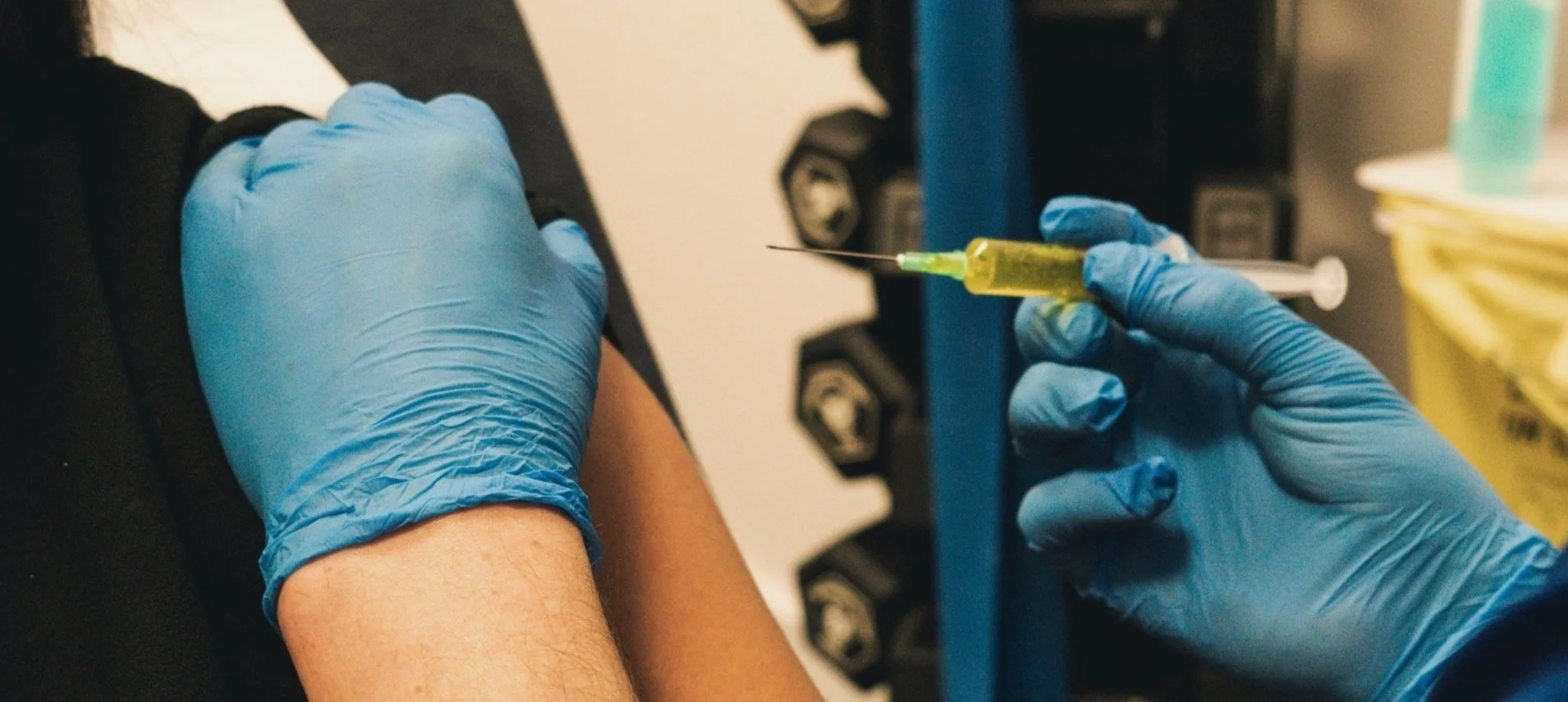
Cortisone injections
What is a Cortisone
(STEROID) injection?
Cortisone injections can help relieve pain, swelling and irritation in a specific area of your body. They're most often injected into joints — such as the ankle, elbow, hip, knee, shoulder, spine or wrist. Even the small joints in the hands or feet might benefit from cortisone injections.
This type of treatment delivers a high dose of medication directly to the problem spot in the body. Corticosteroids help reduce inflammation, because of this, they are helpful in treating painful chronic conditions like tendinitis or bursitis.
Cortisone injections are often used after more conservative treatments have failed, or not been 100% successful in completely removing your pain.
What is special about The Treatment Table is that we have a license to prescribe medication. So unlike other private clinics we do not need the GP to sign off on our treatments, we can prescribe, pick up from the chemist and administer.
What can steroid injections help with?
Rotator cuff injuries
Bursitis
Dequervins syndrome
Achilles tendonitis
Lateral hip pain
Golfers/Tennis Elbow
Osteoarthritis
Sciatica
Steroid injection FAQ’s
Are Steroid Injections Safe for Long-Term Use?
The safety of long-term use of steroid injections depends on the individual and the specific condition being treated. Prolonged use of steroids may lead to side effects, and healthcare providers carefully consider the risks and benefits when prescribing them for extended periods.
Can Steroid Injections Cure My Condition?
Steroid injections are primarily used to manage symptoms and provide relief. They do not cure underlying conditions but can be an effective part of a comprehensive treatment plan.
What Conditions Are Treated with Steroid Injections?
Steroid injections are commonly used to treat conditions such as osteoarthritis, rheumatoid arthritis, tendinitis, bursitis, carpal tunnel syndrome. Other professionals can use them to treat certain skin conditions like eczema and psoriasis.
How does a steroid injection work?
When a steroid injection is administered, it places a concentrated dose of corticosteroid medication directly at the site of inflammation. The medication acts to suppress the immune response and reduce the release of inflammatory chemicals in the area.
Steroids inhibit the activity of immune cells, specifically white blood cells like lymphocytes and macrophages. By reducing immune cell activity, they lower the production of inflammatory molecules and limit the inflammatory response.
As the inflammation subsides, pain, swelling, and other symptoms associated with the condition also decrease. Patients typically experience relief from discomfort and an improvement in their overall well-being.


